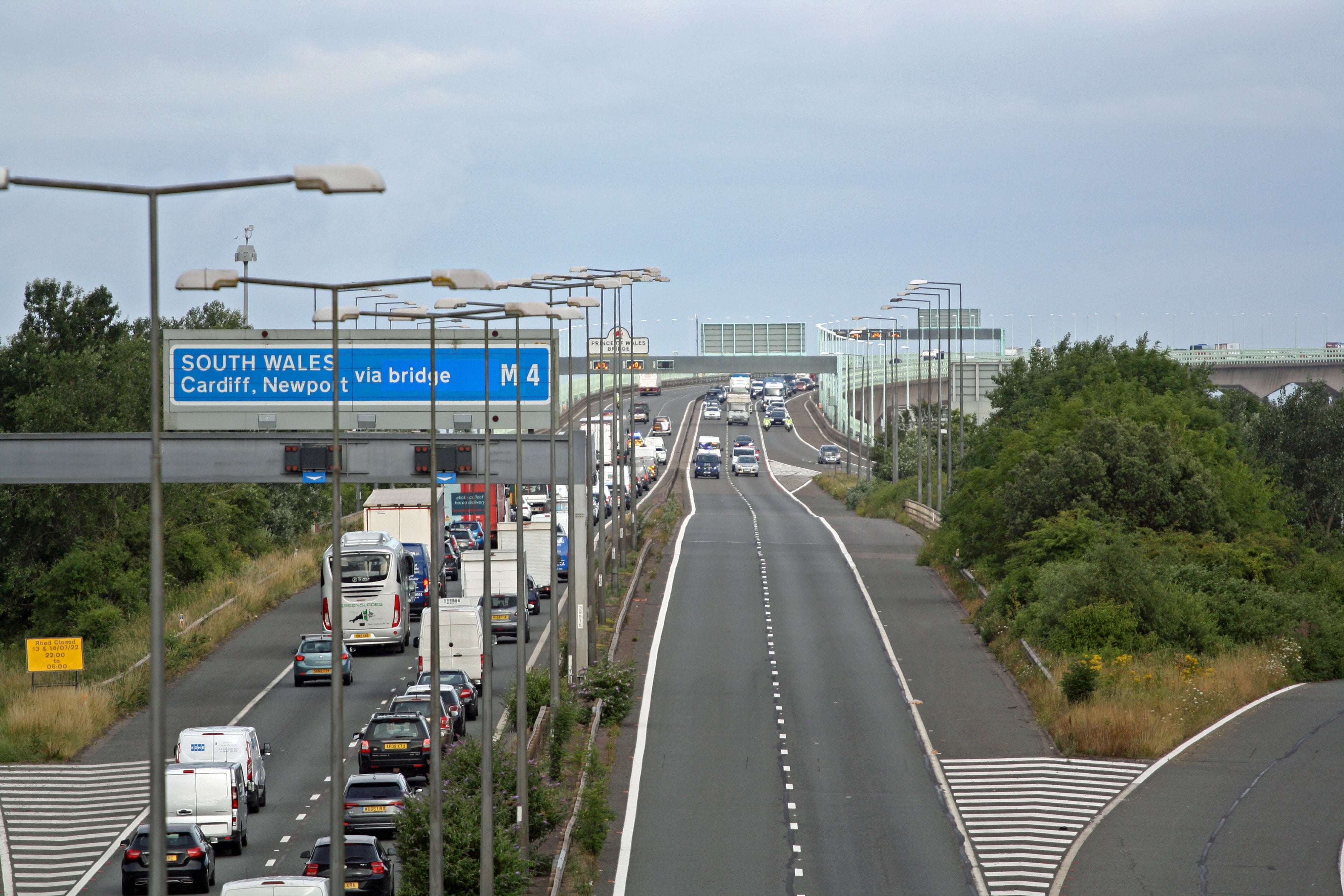
The price of petrol has hit another record high as protesters target major roads across the UK to demonstrate against soaring costs.
The average price of a litre of petrol was 191.5p on Sunday, according to data firm Experian, as motorists continue to feel the pinch from rapidly escalating prices.
It comes as rolling roadblocks have brought parts of the M4 and M5 to a standstill and further protests have erupted on the M54 and A64 over high fuel prices.
Campaigners focused on a stretch of motorway between Bristol and South Wales, including the Prince of Wales Severn bridge crossing between England and Wales, as part of the go-slow protests.
The demonstration is understood to have been organised on social media under the banner “Fuel Price Stand Against Tax”.

Former HGV driver Vicky Stamper, from Cwmbran, was among those protesting and said that she and her partner Darren had to leave jobs in Bristol because they could not afford the fuel any longer.
The 41-year-old said: “We had to leave those jobs because it was costing us £380 a week just to get to and from work.
“I then lost a job two weeks ago because the company couldn’t afford to put fuel in that many lorries so last in, first out.”
Martin Crowley, 48, from Cardiff, said he is a self-employed exotic animal courier and fuel prices are damaging his livelihood.
“Fuel cost me £280 over two days last week. It’s unbelievable,” he said. “You can hardly make a living anymore.”
There have also been protests in other parts of the country as West Yorkshire Police said a “small group” of motorists had gathered at the Ferrybridge services. There was also a go-slow by campaigners on the A64 in the York area.

An RAC fuel spokesperson said it was time to to cut fuel duty again or reduce VAT to help “hard-pressed drivers and businesses”.
Chancellor Rishi Sunak said he will carefully consider calls for a “more substantial” fuel duty cut after the 5p per litre reduction implemented in March failed to halt price rises.
Gwent Police said protests are expected to take place on the road network between 7am and 7pm on Monday.
A government spokesperson said: “While we respect the right to protest, people’s day-to-day lives should not be disrupted, especially on busy motorways where lives are put at risk and resulting traffic delays will only add to fuel use.
“The new Public Order Bill will make it a criminal offence to glue yourself to a dangerous motorway, which sees police spending hours trying to safely remove people.”
Additonal reporting by PA







